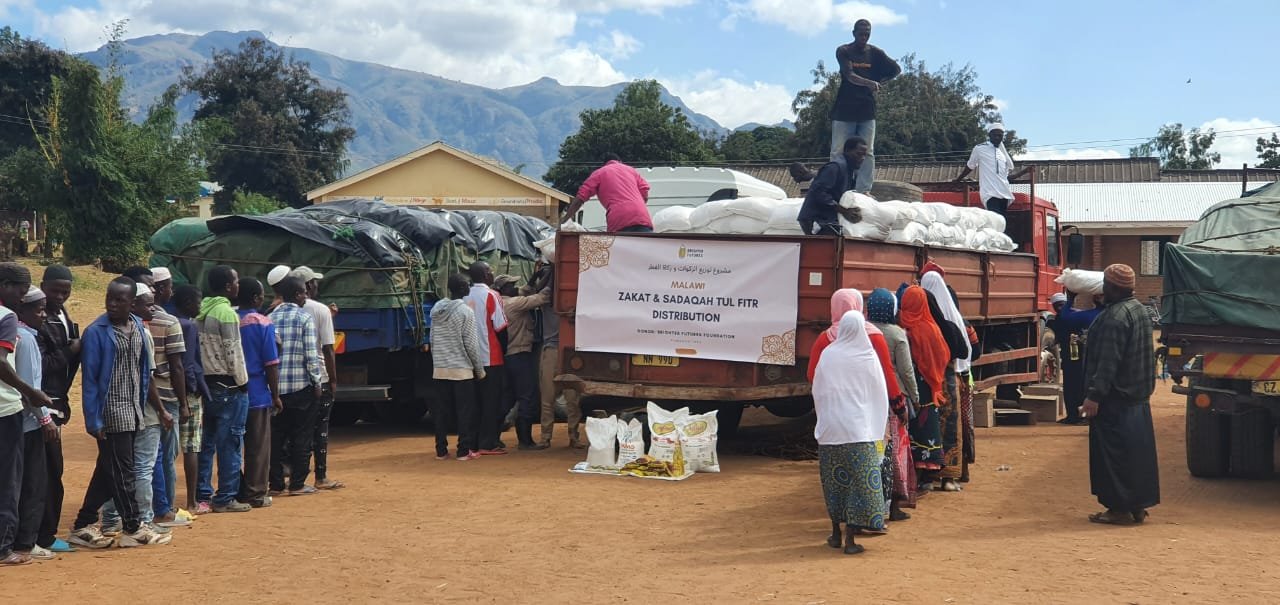
Brighter Futures Zakāt Policies
At Brighter Futures, we recognize that Zakāt is a mandate of Allāh ﷻ and amongst the foundational rites of Islām. Hence, we take the utmost care in ensuring that Zakāt is distributed in compliance with Islāmic dictates.
We believe that Zakāt disbursement should be a transparent process - you have every right to know how your Zakāt money is being used. We ask that Allāh ﷻ accept the Zakāt of all the donors, accept our efforts, and protect us all.
Frequently Asked Questions
-
Zakāt is given for the purpose of providing for indigents Muslims who possess less than niṣāb (the minimum amount of wealth a Muslim must have to be eligible to accept Zakāt).
-
According to the vast majority of scholars, transfer of ownership (tamlīk) is a requirement for the validity of Zakāt. Hence, we take the necessary measures to ensure that the recipient(s) have taken ownership of the funds. For instance, when distributing Zakāt in Togo, we give envelopes of money to the recipients who thereby become owners of the wealth, and in Malawi, we provide food packages to the recipients who thereby become owners of the wealth.
-
Zakāt is not used for construction, digging wells, or any other infrastructural project. This is due to the fact that in such projects, the recipient(s) cannot take physical possession of the item and thus does not gain ownership of it.
-
Zakāt is not used for any of the operational costs associated with our schools or makaatib. As such, Zakāt is not used to pay rent, electricity bills, water bills, purchase equipment, cover student tuitions, or any other operational costs. Zakāt can be provided, however, to the teachers of the schools and/or makaatib, after assessing their Zakāt eligibility.
-
The Qur'ān states that among the eligible recipients of Zakāt are “those who are in the path of Allāh” (في سبيل الله). We uphold the mainstream position of Muslim scholars that “those in the path of Allāh” cannot be taken to be all-inclusive. Zakāt must be given to the indigent who meet the criterion of eligibility.
-
A hīlah is a legal loophole. In Zakāt, hīlahs are employed to utilize zakat for other than its intended purpose while still broadly adhering to the guidelines of the Sharī’ah. Usually, this is achieved by granting tamlīk (ownership) to a predetermined poor individual with instructions/encouragement to put the funds towards another cause – construction or anything else.
At Brighter Futures, we recognize that though hīlahs may not violate the letter of the law, they contravene the spirit of the law. Therefore, we strive to ensure that the poor are the first and final recipients of Zakāt, and they are not used as a means to any other end, regardless of however noble it may be.
-
Alḥamdulillāh, Brighter Futures upholds a 100% donation policy for all our donations. Brighter Futures does not deduct any amount from donations for administrative expenses. Similarly, 100% of your Zakāt goes to the recipients.
For online donations, donors are required to cover the credit card processing fees to ensure the full Zakāt amount reaches Brighter Futures. Alternatively, donors can send Zakāt through Zelle to avoid the credit card processing fees.
-
At Brighter Futures, we view ourselves to be the agents (wakīl) of the donors rather than Zakāt collectors and hence do not use any of the funds to cover administrative costs. We hold that the Qur'ānic designation specifically refers to officially appointed Zakāt collectors operating under an Islāmic government, not mere agents who facilitate the distribution of Zakāt.
-
The Zakāt collected is exclusively given to Muslim recipients. We maintain the most cautious position - one shared by the majority of scholars - that this category of recipients is no longer applicable. Even if it were applicable, it refers to those who are newly Muslim rather potential Muslims.
-
We recognize that some scholars have encouraged that Zakāt be given locally, based on the hadith recorded in Ṣahīḥ al-Bukhārī and Ṣaḥīḥ Muslim:
تُؤْخَذُ مِنْ أَغْنِيَائِهِمْ فَتُرَدُّ فِي فُقَرَائِهِمْ
“Zakāt should be taken from their wealthy and given to their poor”
Therefore, we encourage Muslims to give their Zakāt wherever they feel comfortable and discharge it locally, if possible.
However, considering the inequalities that exist within the current global economic system, we also recognize that if everyone were to dispense their Zakāt locally, wealthy countries would be over-compensated, and impoverished countries would be completely deprived. For this reason, the opportunity to dispense one’s Zakāt internationally and thereby financially assist indigent Muslims in these impoverished regions remains an option for anyone who desires. '
-
To ensure the integrity our programs and assure its conformity to the guidelines stipulated by the Sharī’a, the collection of funds is overseen by Mawlānā Yousuf Ghouse in the United States, and its distribution is overseen by Brighter Futures’ organizational partners, Mawlānā Ibrahim Moufti in Togo, Mawlānā Shiraz Umar in Malawi, and Mawlānā Al-Amin Sulaiman in Chad.
Brighter Futures also requires receipts to be provided for the Zakāt funds transferred, and Brighter Futures receives updates from its partners prior to and following Zakāt distributions.
-
Our administrative expenses are funded privately by donors who contribute specifically to our administrative expenses. No portion is taken out of charitable contributions for administrative costs.

